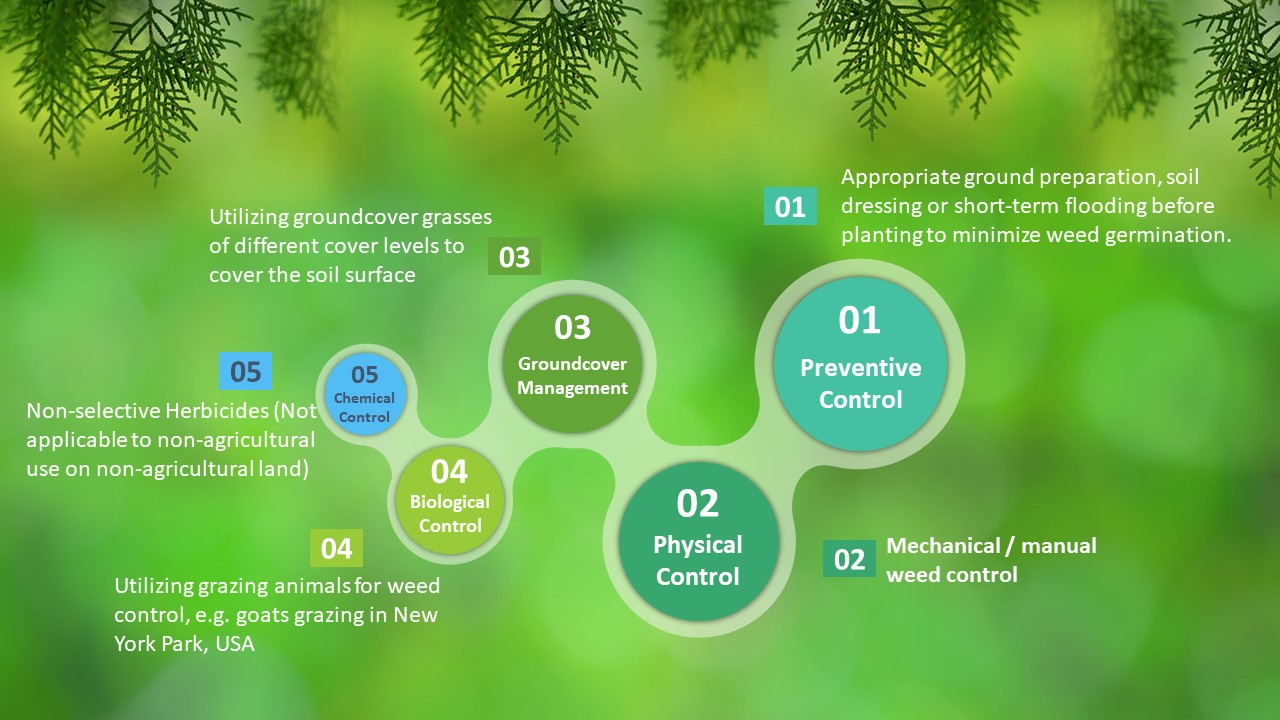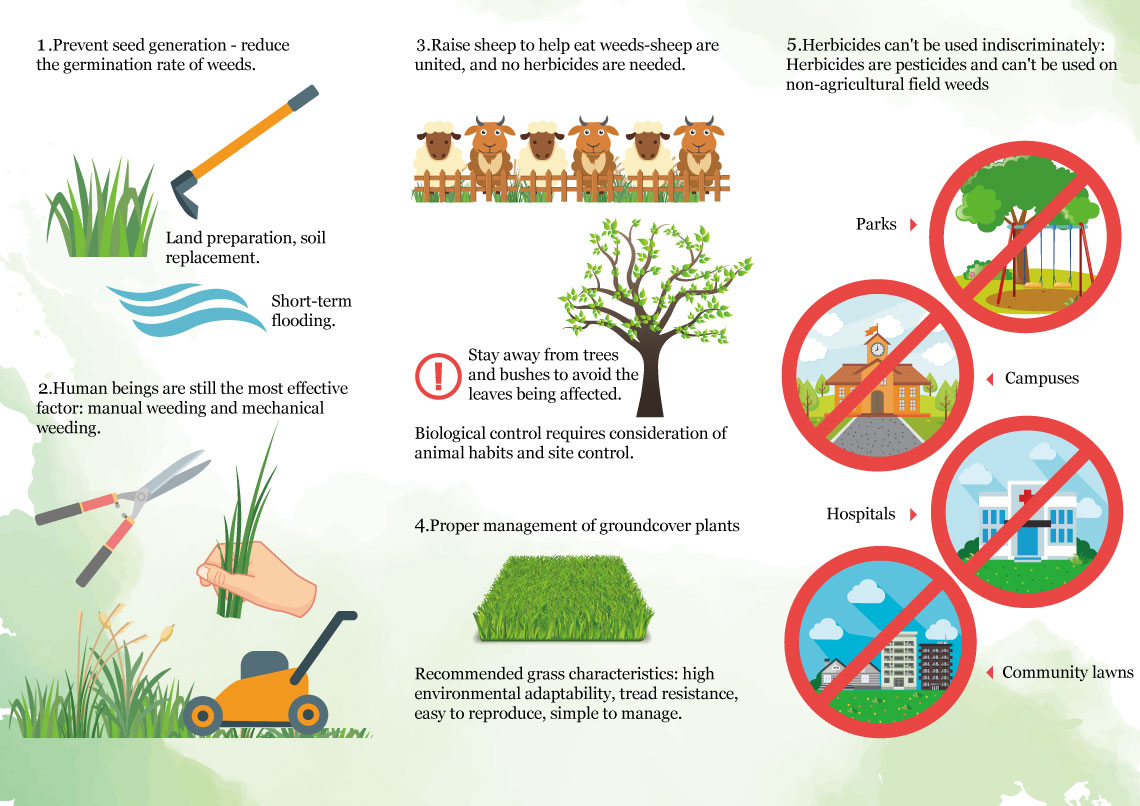Background
With the rise of environmental protection awareness, the use of herbicides has become a topic of great concern to the public. In particular, the long-term spraying of herbicides on non-agricultural land is damaging to the environment and ecosystems, as well as jeopardizing human health. Lai, the former Premier of the Executive Yuan, presided over the "Executive Yuan Food Safety Meeting" on December 14, 2017, and resolved to ask the Council of Agriculture to strengthen the control of herbicides at source and the management of non-agricultural field weeds, and to ask the Environmental Department to assist local governments in formulating the relevant management regulations, with the aim of strengthening the management of herbicides through the inter-ministerial cooperation and avoiding their inappropriate use, contamination of the environment, and endangerment of human health.
"Guidelines on Non-agricultural Field Weed Management" to Provide diversified weed management methods for the public sector
The central and local governments, experts, scholars, and environmental protection organizations work together to establish and provide Integrated Management Strategies (IMS) for weed control and to reduce the reliance on chemical control.
The local government authorities have decided that the use of herbicides for weed control is prohibited in and near specific places (e.g., parks, rural communities, schools, hospitals).
No herbicides are allowed to be used for weed control on lands under the administration of central ministries and their affiliated agencies and local government agencies. If the removal of weeds is outsourced, the policy that herbicides may not be used for weed control is also stated in the contract.
Government agencies at all levels shall follow the aforementioned policy to implement non-agricultural field weed control. In addition, in order to strengthen the management of non-agricultural field weed by government agencies at all levels and the general public, the "Guidelines on Non-agricultural Field Weed Management" has been formulated for the public's reference and application.

Figure: "Guidelines on Non-agricultural Field Weed Management" -Integrated Management Strategies for Weed Control
Proper Handling of Non-agricultural Field Weed
-- Co-existing with weeds. Proper management of weeds. Replacing the use of herbicides. For a sustainable environment.
- Prevent seed generation - reduce the germination rate of weeds: land preparation, soil replacement, short-term flooding.
- Human beings are still the most effective factor: manual weeding and mechanical weeding.
- Raise sheep to help eat weeds-sheep are united, and no herbicides are needed: stay away from trees and bushes to avoid the leaves being affected. Biological control requires consideration of animal habits and site control.
- Proper management of groundcover plants, recommended grass characteristics: high environmental adaptability, tread resistance, easy to reproduce, simple to manage.
- Herbicides can't be used indiscriminately: Herbicides are pesticides and can't be used on non-agricultural field weeds, such as in parks, campuses, hospitals and on community lawns.


